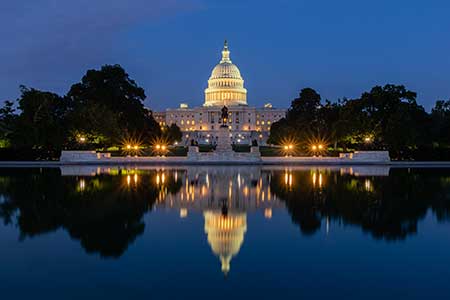SCOTUS Holds That Transportation Worker Need Not Work in Transportation Industry to Qualify for FAA Section 1 Exemption

A CCA Blog*
By Richard H. Silberberg, Past President, College of Commercial Arbitrators
On April 12, 2024, in Bissonnette v. LePage Bakeries St., LLC (“Bissonnette”), the U.S. Supreme Court unanimously resolved a split in the U.S. Courts of Appeal concerning the scope of the exemption in Section 1 of the Federal Arbitration Act (“FAA”) for “contracts of employment of seamen, railroad employees, or any other class of workers engaged in foreign or interstate commerce.”
Last Term, in Southwest Airlines Co. v. Saxon (“Saxon”), SCOTUS had held that “any class of workers directly involved in transporting goods across state or international borders falls within § 1’s exemption.” The Second Circuit (in Bissonnette) and the Eleventh Circuit subsequently added an additional requirement, namely, that a worker be employed by a company that sells transportation services to be eligible for the FAA exemption for transportation workers. The First and Seventh Circuits declined to impose an “employer-based industry requirement.”
In vacating the Second Circuit’s holding that a worker’s employer must be engaged in the “transportation industry” for the worker to be exempt under § 1 of the FAA, SCOTUS held in Bissonnette that “[a] transportation worker need not work in the transportation industry to fall within the exemption from the FAA provided by § 1 of the Act.” In so ruling, SCOTUS upheld the argument advanced by the plaintiffs in Bissonnette — commercial truck drivers who transport a bakery company’s goods to its retailers across state lines — that there is nothing in the text of § 1 supporting a requirement that the worker’s employer be engaged in the “transportation industry.”
Writing for the Court, Chief Justice Roberts emphasized that in Saxon, SCOTUS had “expressly declined to adopt an ‘industry-wide approach’ of the sort advanced by the bakery company in Bissonnette. Today’s unanimous ruling was expected, particularly in light of the skepticism expressed by the Justices at oral argument concerning the bakery company’s assertion that the § 1 exemption contemplated a requirement that the employer be engaged in the transportation industry, and because adopting such a requirement would have required SCOTUS to take a significant step back from the broad pronouncement that it made in Saxon despite the absence of any textual hook in §1 for doing so.
Two further observations about the decision are worthy of note. First, SCOTUS pointed out that the only question before it in Bissonnette was whether a transportation worker must work for a company in the transportation industry to be exempt under § 1 of the FAA. The Court stressed that the Second Circuit below had not addressed whether the plaintiffs in Bissonnette qualified as transportation workers based upon the work that they performed and, accordingly, SCOTUS did not decide that issue.
Second, at oral argument, Justice Sotomayor referred to the possibility that the employer could move to compel a “transportation employee” to arbitrate under state law. SCOTUS followers wondered whether SCOTUS would address that issue in its opinion. SCOTUS did not. Seeking to compel arbitration under state law remains a potentially viable option for an employer in circumstances where the employee is found to be (or is likely to be found to be) exempt under § 1 of the FAA. However, the circumstances under which the state law option is available remain uncertain in the absence of further judicial guidance.
*We are using the Aardvark moniker to denote our CCA Blog. The Aardvark will provide content from time to time about cases, developments and issues associated with the practice of Arbitration. We hope you will find the blog entries interesting and useful. We encourage you to watch for the Aardvark and its arbitration content that we hope you will enjoy.
